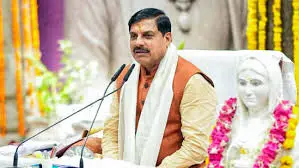MP’s nine-month celebration of an 18th-century queen: The importance of Ahilyabai Holkar

MP’s Nine-Month Celebration of an 18th-Century Queen: The Importance of Ahilyabai Holkar
Madhya Pradesh is currently marking an extensive nine-month-long celebration in honor of one of its most revered historical figures—Ahilyabai Holkar, the queen of the Malwa kingdom during the 18th century. This unique commemoration seeks to revive the legacy of a ruler whose leadership, wisdom, and dedication continue to inspire generations today.
A Legendary Queen in Indian History
Ahilyabai Holkar (1725–1795) was not just a queen; rather, she was an extraordinary ruler who broke conventional gender roles and left an indelible mark on Indian history. After the untimely death of her husband, Maharaja Khanderao Holkar, she ascended the throne of the Malwa kingdom at a time when women rarely held positions of power.
Moreover, her reign lasted for over three decades, during which she transformed the kingdom into a prosperous, well-governed state known for justice, infrastructure, and cultural patronage. Unlike many rulers who prioritized conquest, Ahilyabai instead focused on welfare, public works, and spirituality.
The Nine-Month Celebration in Madhya Pradesh
Consequently, the state government of Madhya Pradesh launched this unique nine-month celebration in 2024, running through much of 2025. The festivities include cultural programs, exhibitions, seminars, and restoration projects of historical sites connected with Ahilyabai’s rule.
In addition, the event aims to highlight her contributions to architecture, public welfare, and social reforms. From the renovation of ancient temples to the promotion of local arts and crafts, this celebration underscores the enduring influence of Ahilyabai’s vision.
Ahilyabai’s Vision and Governance
Ahilyabai Holkar’s governance style was progressive and ahead of its time. She emphasized justice and fairness, ruling with compassion and integrity. For instance, her administration was known for the absence of corruption and the welfare of all subjects, irrespective of their caste or religion.
Furthermore, she invested heavily in infrastructure, commissioning the construction of roads, wells, rest houses, and temples across India. Notably, she funded and maintained sacred pilgrimage sites from Varanasi to Haridwar, reflecting her deep spiritual devotion and commitment to fostering unity.
As a result, her policies helped stabilize the Malwa region after turbulent times and created an environment where trade and agriculture flourished, contributing significantly to the kingdom’s prosperity.
Cultural and Historical Significance
Ahilyabai Holkar stands as a beacon of female empowerment in Indian history. At a time when women had limited social roles, she ruled with authority and wisdom, earning the respect of her people and neighboring states alike.
Additionally, her legacy symbolizes the rich cultural heritage of Madhya Pradesh. Many of the temples and public works she commissioned still stand today, attracting pilgrims and tourists. Therefore, the current celebration aims to revive interest in these sites and educate the public about their historical importance.
Educational Initiatives and Public Awareness
During the nine-month celebration, schools and colleges across Madhya Pradesh are incorporating Ahilyabai’s life and contributions into their curriculum. Furthermore, public lectures, storytelling sessions, and art competitions are encouraging young people to learn about and appreciate their heritage.
Simultaneously, the government is working with historians and cultural experts to document and disseminate authentic accounts of her reign. These efforts ensure that Ahilyabai Holkar’s story is preserved for future generations and remains a source of pride for Madhya Pradesh.
Honoring a Role Model for Leadership
Ahilyabai Holkar’s life teaches invaluable lessons about leadership, resilience, and service. Indeed, her ability to govern effectively while maintaining empathy and integrity offers a model for today’s leaders.
By celebrating her achievements, Madhya Pradesh not only honors a historical figure but also inspires its citizens—especially women and young people—to aspire to greatness and social responsibility.
Conclusion
In conclusion, the nine-month celebration of Ahilyabai Holkar in Madhya Pradesh is a fitting tribute to a queen whose legacy transcends centuries. As the state embraces this historic occasion, it renews its connection with a past marked by enlightened leadership and cultural richness.
Undoubtedly, Ahilyabai Holkar remains an enduring symbol of strength, compassion, and dedication—qualities that continue to resonate deeply in India’s collective memory. Through this celebration, Madhya Pradesh ensures that her story of courage and benevolence remains alive, inspiring generations to come.






